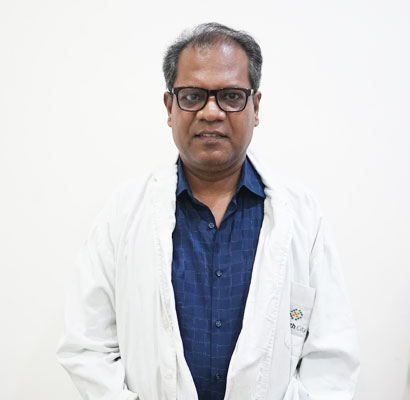HealthCity Gastroenterology Department
At HealthCity, we understand the importance of digestive health and the impact it has on your overall well-being. Our Gastroenterology Department is committed to providing comprehensive, compassionate care for all your digestive needs. With a team of highly experienced and skilled gastroenterologists, we offer cutting-edge diagnostic services, personalized treatment plans, and effective management for a wide range of gastrointestinal conditions.
![]()
Reason to Choose Gastroenterology at HealthCity
Expert Care by Experienced Doctors
Our gastroenterology team consists of highly qualified and experienced specialists who are dedicated to providing exceptional care. With years of expertise in diagnosing and treating complex digestive disorders, you can trust that you are in the best hands. Whether you are experiencing common digestive issues or require more advanced treatments, our team is here to guide you every step of the way.
State-of-the-Art Facilities
We utilize the latest technology and advanced diagnostic tools to ensure accurate results and optimal treatment plans. From non-invasive tests to advanced endoscopic procedures, our facilities are designed to provide you with the highest quality care in a comfortable and welcoming environment.
Comprehensive Services
We offer a wide range of services to address various gastrointestinal concerns, including:
Diagnostic Procedures: Comprehensive screenings and tests to diagnose conditions like GERD, Crohn’s disease, celiac disease, irritable bowel syndrome (IBS), liver disorders, and more.
Endoscopic Procedures: Our experienced doctors perform advanced endoscopic techniques such as colonoscopy, endoscopic ultrasound (EUS), and upper GI endoscopy to detect and treat conditions early.
Treatment Plans: Personalized treatment strategies to manage chronic conditions like ulcerative colitis, Crohn’s disease, IBS, and others, focusing on lifestyle changes, medication, and cutting-edge therapies.
Liver and Pancreatic Health: Specialized care for conditions like hepatitis, cirrhosis, pancreatitis, and pancreatic cancer. Colon Cancer Screening: Routine screening and preventative care to detect colorectal cancer early, improving outcomes and quality of life.
Holistic Approach
At HealthCity, we believe in treating the whole person, not just the condition. Our team works closely with you to develop an individualized treatment plan that aligns with your health goals, lifestyle, and needs. We emphasize education, prevention, and long-term management to ensure that you feel supported and empowered on your health journey.
Our Services
Comprehensive Diagnostics
We use advanced imaging and testing to diagnose a range of conditions, such as:
Endoscopy & Colonoscopy
Our expert team provides minimally invasive procedures, including colonoscopies and upper GI endoscopies, to diagnose and treat a variety of gastrointestinal conditions early and effectively.
Personalized Treatment Plans
From dietary guidance to advanced pharmaceutical treatments and surgical interventions, we design tailored solutions to manage chronic conditions and provide relief from digestive discomfort.
Meet Our Experienced Team
Our Dedicated Consultants for Gastroenterology



